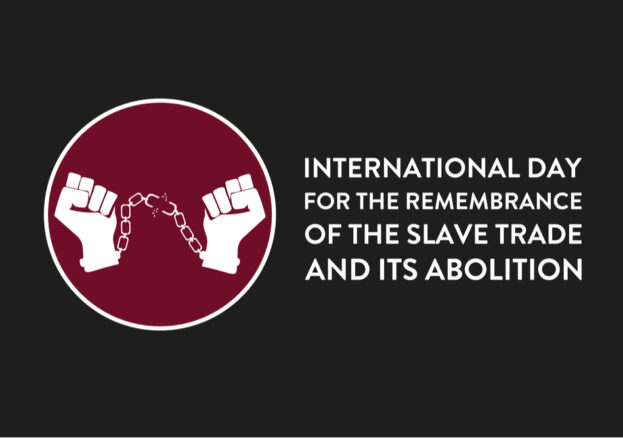
This year’s event offers us an opportunity to reflect on how the the Transatlantic Slave Trade continues to have a profound impact on the lived realities of so many. We will consider how Britain’s role in the slave trade has been depicted over the years, who have been the story tellers and what stories are yet to be told.
Commemoration Ceremony: 4pm – 4.45pm
The Mayor of London, Sadiq Khan and Deputy Mayor for Social Integration, Social Mobility and Community Engagement, Debbie Weekes-Bernard alongside a range of academics will reflect on the event’s theme of ‘reclaiming the past’. We are delighted to welcome S.I.Martin (author and historian), Olivette Otele (Professor of History of Slavery, Bristol University) and musical performances by saxophonist Xhosa Cole and Chineke! Orchestra.
Looking to the Future: 7pm – 8.30pm
Shezal Laing from Slavery Remembrance, with host SisDr Sandra Richards and invited speakers will lead through us panel discussions. These will focus on the social, physical and economic impact of the transatlantic slave trade on London, and how this period of history is currently taught. We will also have featured performances from pianist and violinist Sam West and singer-songwriter Ayanna Witter-Johnson.
Panel discussion 1 – Statues, Docks, Sugar & Money
Chair: Shezal Laing (founder of Slavery Remembrance) featuring special guests including Esther Stanford (Reparations Committee), Arike Oke (Black Cultural Archives), Toyin Agbetu (Ligali) and Jak Beula (Nubian Jak).
Panel discussion 2 – Education and History
Chair: Tony Warner (founder of Black History Walks) featuring special guests including Apex Zero (My Tribe), The Young Historian Project and Florence Onbanjo (GLA Peer Outreach worker).
We would love you to join us for this important, timely and relevant event. We look forward to seeing you virtually. Register your ticket on Eventbrite here.
Sankofa Day* is an annual memorial in London’s Trafalgar Square, hosted by Slavery Remembrance, to remember the 20+ million victims of human trafficking during the 400 years of Transatlantic Slavery. It also marks UNESCO’s International Day for the Remembrance of the Slave Trade and its Abolition.
Historic Background
The night of 22 – 23 August 1791, in Santo Domingo (today Haiti and the Dominican Republic) saw the beginning of the uprising that would play a crucial role in the abolition of the transatlantic slave trade.
The International Day for the Remembrance of the Slave Trade and its Abolition is intended to inscribe the tragedy of the slave trade in the memory of all peoples. It should offer an opportunity for collective consideration of the historic causes, the methods and the consequences of this tragedy, and for an analysis of the interactions to which it has given rise between Africa, Europe, the Americas and the Caribbean. (UNESCO)

